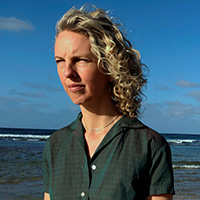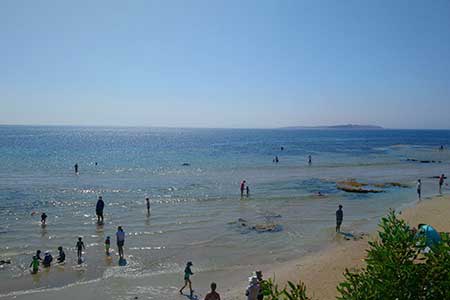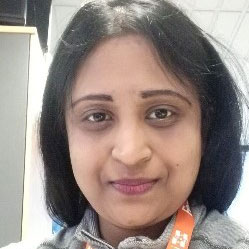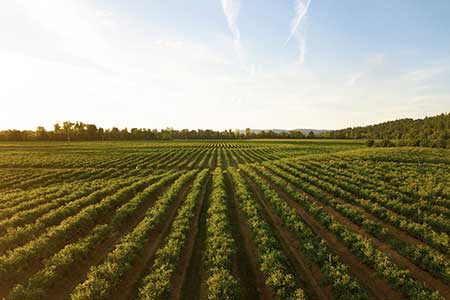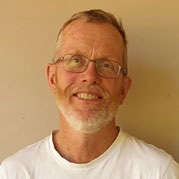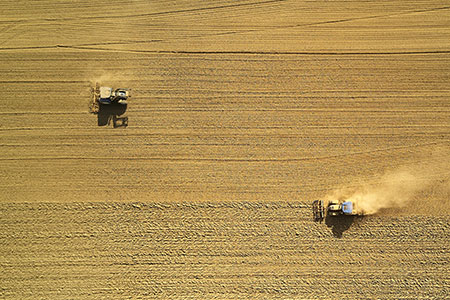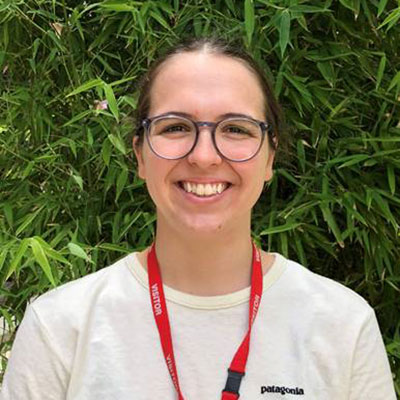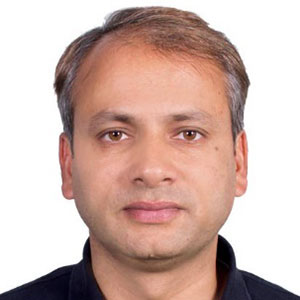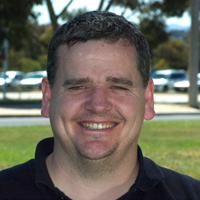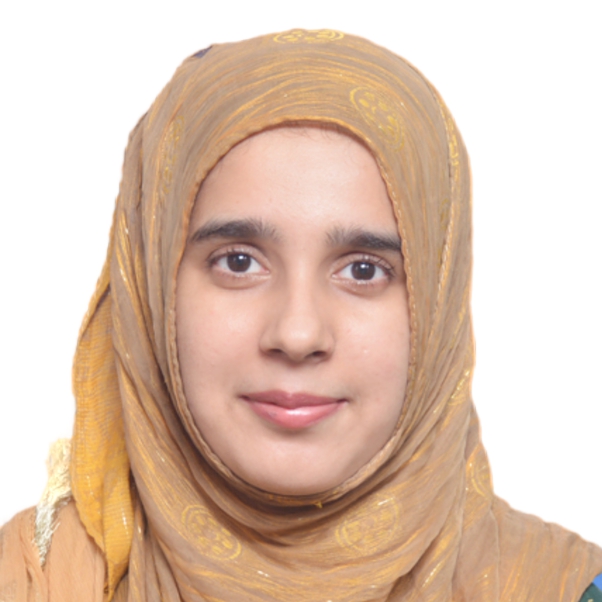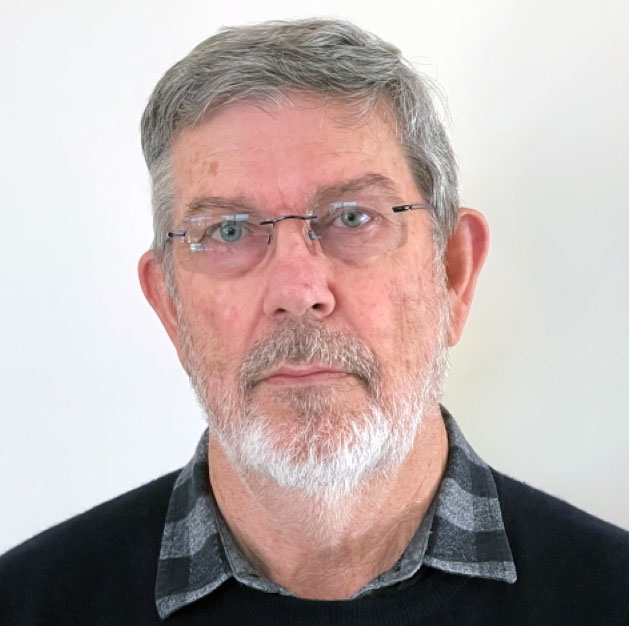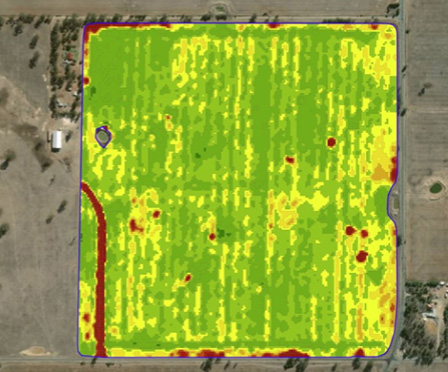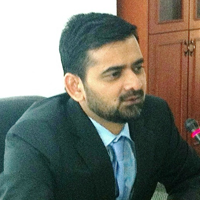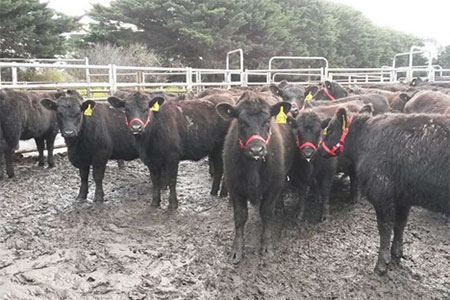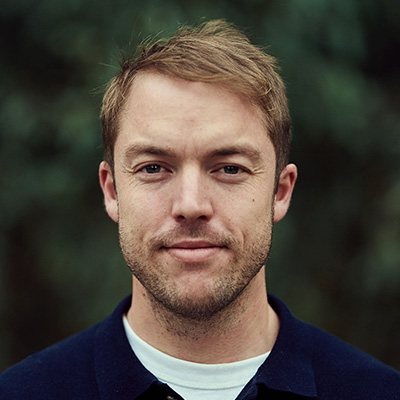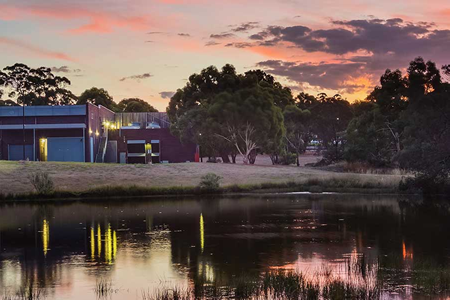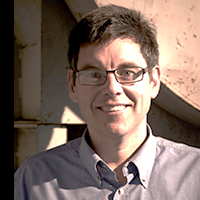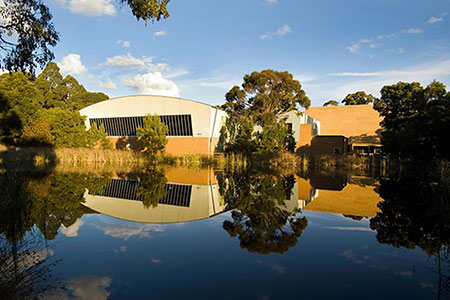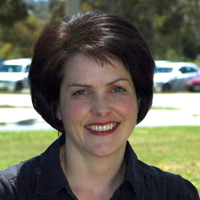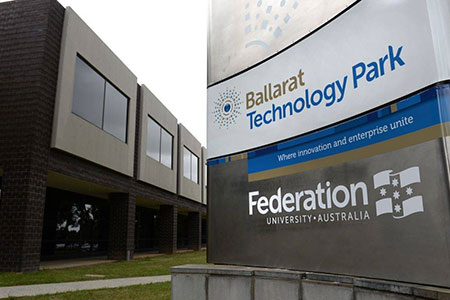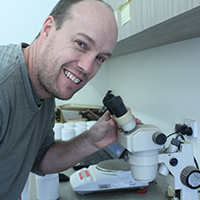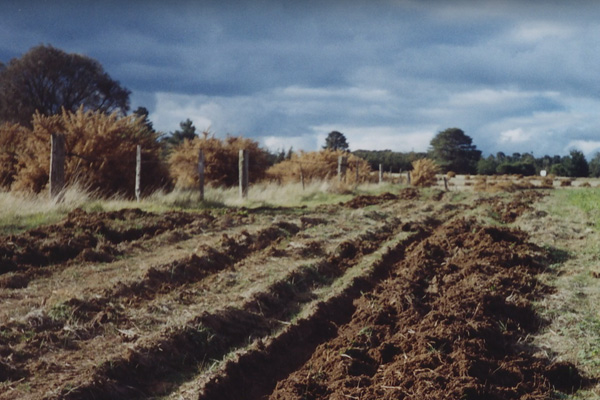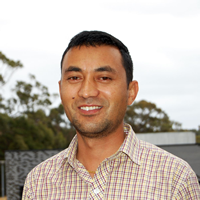
Higher Degree by Research Students
CeRDI's higher degree by research (HDR) students are part of a multidisciplinary research centre with a strong research culture and established industry connections. Many of CeRDI's HDR students have received industry scholarships that enable deeper research collaboration and facilitate research outputs with national and international relevance.
Elissa Ashton-Smith
Elissa commenced her PhD with CeRDI in February 2019. Prior to this, she was working in the Natural Resource Management sector as a Landcare Facilitator. Elissa’s PhD explores the impacts on coastal communities and ecosystems from increased urbanisation, population change and seasonal variation. The research builds upon work that CeRDI completed for Barwon Coast investigating the attitudes, knowledge, and behaviours of the general community in relation to coastal management and beach use around Barwon Heads and Ocean Grove.
Year PhD commenced: 2019
The conservation and management of sandy beach ecosystems: exploring the divergence between policy, science and socio-cultural expectations for stewardship and use
In order to address the rate and severity of deterioration in ecosystem health and biodiversity, transformative change is needed across economic, social, political and technological domains.
Rekha Attanayake
Rekha commenced her PhD with CeRDI in 2019 with Southern Farming Systems, Victorian Limestone Producers Association and Precision Agriculture as industry partners. Her research will explore and develop novel approaches to advance understanding of lime type, quality, variability and spreadability on performance for agricultural purposes under current farming systems and practices.
Year PhD commenced: 2019
Developing new methods to help farmers make decisions on lime use and lime requirement
Soil acidity is recognised as one of the major soil constrains to increased agricultural productivity in Australia.
Robert Clark
Robert commenced his PhD with CeRDI in 2019 with Grains Research and Development Corporation as the industry partner. His research will explore how federating Australian grain trial data can lead to new discoveries that support the ideals of digital agriculture and enduring profitability for growers.
Year PhD commenced: 2019
Predicting crop yield within the growing season at sub-paddock scale: a big data approach
The availability of accurate and timely predictions of crop yield within the growing season would be of enormous benefit to the grains industry in Australia.
Hannah Faraone
Hannah commenced her PhD with CeRDI in 2024 in collaboration with RMIT University and the Department of Energy, Environment, and Climate Action (DEECA). Her research will explore the relationship between anthropogenic litter and birdlife in the Greater Melbourne region. This will include field and desktop investigations into the types of interactions that occur (i.e., ingestion, entanglement, use as nesting and breeding material), as well as the related impacts (i.e., mortality, injury, breeding success). This PhD draws on previous work completed by CeRDI and DEECA, including the creation of the database, LitterWatch (a state-government initiative used to collect litter data from Victorian community groups that is consistent and comparable). The PhD will also include a 3-month internship with DEECA that will involve supporting the management and maintenance of the LitterWatch portal.
Hannah completed a Bachelor of Science and Honours degree with RMIT University in 2022 and a Graduate Certificate in Environment with the University of Melbourne in 2023.
Year PhD commenced: 2024
The impact of macrolitter on birdlife in the Port Phillip Region and Greater Melbourne
Supervisors: Primary Supervisor is Dr. Birgita Hansen. Secondary Supervisors are Dr. Nick Schultz (Federation University) and Dr. Jackie Myers (RMIT).Industry Supervisor is Kimberley MacDonald (DEECA).
Pramod Gautam
Pramod completed his Master’s degree in Plant science from Norwegian University of life sciences, Norway, and Bachelor of Science (Agriculture) from Tribhuvan University, Nepal. He worked in different non-governmental organizations in the sector of agribusiness and environment for more than 8 years. He is currently enrolled as a PhD candidate supported by a Destination Australia Scholarship, in partnership with IBM Watson Centre in Ballarat, focused on decision support systems to help farmers achieve net zero carbon. His research will explore how farmers are using decision support system for monitoring carbon emissions and will also develop a Decision Support System (DSS) using sensors, artificial intelligence to access the quantity and quality of data for carbon monitoring, modelling to achieve net zero carbon for agribusiness.
Year PhD commenced: 2023
Achieving net zero emissions in agriculture: Developing decision support systems for land and enterprise managers
Achieving net zero emissions in agriculture: Developing decision support systems for land and enterprise managers - Global anthropogenic greenhouse gas (GHG) emissions are increasing day by day and net zero target is a great challenge.
Andrew MacLeod
Andrew has extensive experience in project planning and the implementation of major information technology projects. With a strong understanding of eCommerce, portal technology and strategies, Andrew's technical skills include web development and programming (PHP, XML/XSLT and JavaScript). Andrew has worked on projects that have ranged from database design and implementation to community portals and web pages. He has worked extensively with regional and rural communities to implement effective web-based services. Andrew completed a Bachelor of Computing at the University of Ballarat, followed by an Honours in Applied Science (Information Technology). Andrew has been with CeRDI since 1999 and has been Technical Manager since 2002. In 2006 Andrew achieved certification as a Zend Certified Engineer.
Year PhD commenced: 2021
Advancing syntactic and semantic interoperability for data in the agricultural and food industries
Access to data provides the fuel for next generation decision support systems, and opportunities for sharing data across national and international borders, and across government, industry and academic sectors, have never been greater.
Rida Mazhar
Research title: Maximising data integration and interoperability for better regional outcomes.
Supervisors: Primary supervisor; Distinguished Professor Helen Thompson, secondary supervisor; Shoaib Riaz.
Rida Mazhar started her PhD at CeRDI in March 2024, focusing on a research project titled "Maximization of Data Integration and Interoperability for Better Regional Outcomes." The core aim of her research is to investigate the utilization of data sharing and cutting-edge smart technologies to enhance liveability, prosperity, innovation, safety, and social connectedness within the rapidly expanding City of Ballarat. By leveraging data visualization and analytics, she seeks to improve urban planning processes.
Year PhD commenced: 2024
Peter Weir
Peter commenced his PhD with CeRDI in 2020 and receives an Australian Government Research Training Program fee-offset scholarship through Federation University Australia. He also receives a scholarship from the Cooperative Research Centre for High Performance Soils whose activities are funded by the Australian Government's Cooperative Research Centre Program.
Year PhD commenced: 2020
In-Paddock Variability of Plant Available Water
With the adoption of Precision Agriculture (PA) and implementation of site-specific crop management (SSCM) by farmers, there is a better understanding of both spatial and temporal variabilities in cropping fields and to a lesser extent, pastures.
Dr Basharat Ali
Basharat joined CeRDI to pursue his HDR. He has graduated from the Mehran University of Engineering & technology, University of Wollongong and Northern University, Malaysia. He relates to almost fifteen years of national and international (academic/industry/training/research & development) working with Telstra (Sydney) Australia, Middle East College, Muscat (affiliate with the Coventry University, UK) Northern University, Sintok, Malaysia. His research interest includes technology/innovation mgmt., Mgmt. information system, Data science, FAIR data, resilience management. He has numerous international publications, published with Scopus and peer reviewed journals and conference proceedings to his credit.
Thesis: Investigating the roles of precision conservation, digital and resilient agriculture practices in sustainable agricultural performance ![]()
Year commenced: 2019
Year completed: 2023
Investigating the roles of data, digital agriculture and resilience in agricultural performance
Based on the 2050 projection of agriculture production and the evaluation of environmental impacts of substitute ways to meet the future food demand, it has been established that the environmental implications of meeting this demand depends on the mechanism adopted by global agriculture.
Dr Chris Bahlo
Chris commenced her PhD with CeRDI in 2016 as part of the Regional Universities Network Precision Agriculture Flagship. Her research is on data interoperability in precision agriculture. She has an honours degree in Information Technology, a Business degree and a diploma in Agricultural Science. Chris works as a Researcher at CeRDI and has previously worked in information technology, agriculture and business roles.
Thesis: Open data and interoperability standards: opportunities for animal welfare in extensive livestock systems ![]()
Year commenced: 2016
Year completed: 2021
Open data and interoperability standards: Opportunities for animal welfare in extensive livestock systems
Extensive livestock farming constitutes a sizeable portion of agriculture and contributes to feeding a growing human population.
Dr Patrick Bonney
Patrick commenced his PhD with CeRDI in 2016 as part of the Regional University Networks Water Futures Fund. His research is examining citizen science and public policy and involves working closely with the Corangamite Catchment Management Authority to measure and explore the issues and opportunities of the Waterwatch Victoria and EstuaryWatch Victoria programs. Patrick works as a Researcher at CeRDI and liaises with volunteers, environmental groups and government and non-government agencies involved with Citizen Science and Natural Resource Management.
Thesis: Citizen science: Knowledge, networks and the boundaries of participation ![]()
Year commenced: 2016
Year completed: 2020
Citizen science: Knowledge, networks and the boundaries of participation
Public involvement in localised scientific investigations is critical to improve knowledge and management of freshwater environments. This thesis shows that these benefits are strongly shaped by social relations and broader cultural and political contexts.
Dr David Ebbs
David completed his PhD with CeRDI in 2019 after more than 25 years working predominantly in the manufacturing sector. David's research was on alternative water supplies and investigating a triple bottom line analysis of alternative methods for using stormwater to supplement a city's water supply. David completed a Chemical Engineering honours degree and a Master of Business Administration. David worked as a Researcher at CeRDI and a Lecturer at Federation University in water drainage infrastructure and wastewater treatment.
Thesis: Harvesting stormwater: Testing the paradigm by assessing the impacts with an inter-disciplinary case study ![]()
Year commenced: 2015
Year completed: 2019
Harvesting stormwater: testing the paradigm by assessing the impacts with an inter-disciplinary case study
Integrated Urban Water Management (IUWM) is often proposed as a framework for comprehensively managing the water cycle in urban areas. One of the tenets of IUWM is that, due to increased impervious area, stormwater runoff in excess of the natural flow could be captured and used to supplement the water supply, while mitigating the environmental impact.
Dr Alison Ollerenshaw
Alison commenced her PhD with CeRDI in 2016 with Melton City Council and Western BACE as industry partners. Her research is examining whether a relationship exists between the characteristic services offered by business incubators and their tenants' psychological capital. She has completed a Masters of Applied Science and a diploma in Project Management. Alison works as a Research Fellow at CeRDI and uses her experience in project management and coordination across a range of research projects and activities.
Thesis: The relationship between business incubator services and the psychological capital of tenants ![]()
Year commenced: 2016
Year completed: 2019
The relationship between business incubator services and the psychological capital of tenants
Business incubators offer nascent businesses a protective and nurturing environment, supporting tenants to grow their businesses and be sustainable in the long-term. Two studies were conducted as part of this PhD to examine the relationship between characteristic services offered at business incubators and incubator tenants’ psychological capital.
Dr Nathan Robinson
Nathan completed a PhD at Federation University in 2016. His research assessed productive soil - landscapes in Victoria using digital soil mapping. Nathan received the prestigious 2017 CG Stephens award from Soil Science Australia, granted to the best PhD for soil science across Australia.
Thesis: Assessing productive soil - landscapes in Victoria using digital soil mapping ![]()
Year commenced: 2011
Year completed: 2016
Digital Soil Mapping in Australia
Digital Soil Mapping in Australia was a collaborative workspace for researchers working on digital soil mapping in Australia. This workspace was developed in collaboration with the Australian Advisory Group on Digital Soil Assessment.
Dr Himalaya Singh
Himalaya completed a PhD at Federation University in 2018. His research explores the application of spatial methods in sports injury epidemiological studies. Himalaya received the Best Rapid Oral (Student) award at the 13th Australasian Injury Prevention and Safety Promotion Conference.
Thesis: Spatial epidemiological investigation of sport and leisure injuries in Victoria, Australia ![]()
Year commenced: 2013
Year completed: 2018
Spatial Epidemiological Investigation of Sport and Leisure Injuries in Victoria, Australia
Sport and leisure injuries are recognised as a public health issue in Australia. To keep Australia active there is a critical need to prevent injury occurrence.
Dr Chris Bahlo, Alumnus, Centre for eResearch and Digital Innovation, Federation University Australia
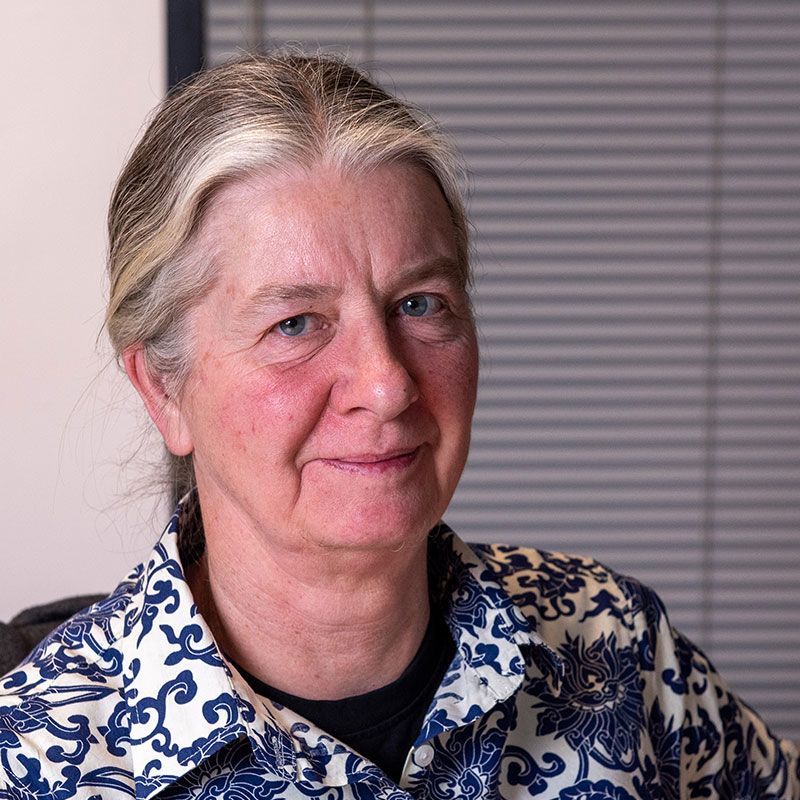 | |
Chris Bahlo commenced her PhD in early 2016, having successfully applied for a Regional Universities Network (RUN) PhD and scholarship. Chris’s PhD involved the examination of open data and interoperability standards within Australia’s agriculture and animal welfare systems, for improved resilience, productivity and profitability.
Prior to commencing her PhD, Chris had established strong ties with Federation University having completed a Bachelor of IT (Professional Practice) with Distinction from Ballarat University in 2013 and completing an Honours degree the following year. For Chris, the decision to pursue her PhD at Federation University was influenced by various factors including the similarities between the PhD topic and her qualifications, work experience, and interests. Chris was also keen to take advantage of studying at a regional university, being familiar with the university campus of Mt Helen, and living and running a small farm close by.
Another important draw card for Chris in completing her PhD was its linkages with CeRDI. The Centre’s close ties to industry, its range of collaborative projects and the implementation of new technologies presented exciting opportunities for Chris which would complement and expand her research skills. In commenting on this, Chris says:
I valued the ease of access to highly experienced academics and researchers, but also found it very useful to be based in an office with fellow HDR students for exchange of ideas, mutual encouragement and assistance. The technical team was also helpful in assisting me with projects. Additionally, I was able to work within the CeRDI team on various projects, many of which were closely aligned with my PhD project and provided valuable learning and ideas.
The breadth of research activities in CeRDI across multiple domains was also integral in shaping Chris’s PhD experience. This was complemented by a strong technical team, and in collaboration with other researchers and industry bodies, further facilitated the positive experiences and development of skills that Chris gained during her studies.
Chris submitted her PhD for examination in early 2021 and was recently notified that her thesis had been successfully examined, passed subject to minor corrections. Chris is currently employed in CeRDI.
Dr Patrick Bonney, Alumnus, Centre for eResearch and Digital Innovation, Federation University Australia
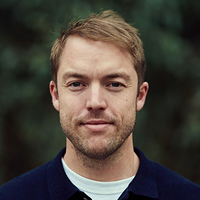 | |
A PhD scholarship recipient in the Centre for eResearch and Digital Innovation, Pat Bonney commenced his studies in late 2016 examining citizen science and water policy. As a freshwater scientist this research presented Pat a unique opportunity to blend his discipline expertise with interests in science communication, and the human dimensions of freshwater problems.
The expertise, support and responsiveness of his supervisory team was instrumental in shaping the focus and novelty of Pat’s research. His supervisors came from diverse backgrounds and included Dr Angela Murphy (Principal), Dr Birgita Hansen, and Dr Claudia Baldwin from the University of the Sunshine Coast. Pat reflects that as a team, they trusted in his ideas and allowed him to undertake his research that best suited his personal style, background and curiosity. It was this trust and flexibility that kept Pat’s motivation high throughout his candidature.
Pat also credits CeRDI in playing an important role in supporting and shaping his PhD experiences. The collegial support from other researchers, the technology team and staff at CeRDI contributed positively to Pat’s PhD experience. Complementing this were the exciting opportunities for methodological and career development. Specifically, the data management and technology development and expertise available in CeRDI enabled Pat to investigate research questions he would not have otherwise had the ability to do. Likewise, the broad, multi-sectoral partnerships, in CeRDI enabled Pat to better understand the context of his own research and to communicate effectively about his research with key stakeholders from government, non-government and community-based organisations.
The benefits for studying at Federation University were further reinforced, with the practical advice and workshops available to HDR students. In summarising his time at CeRDI and Federation University Pat comments:
It provided a set of tools that has enhanced the potential of my research. It has enabled me to consider non-traditional ways to collect, analyse and disseminate data. These developments have been essential in shaping my research and progressing my fields of interest.
Pat graduated with a PhD in 2021.
Dr Alison Ollerenshaw, Alumnus, Centre for eResearch and Digital Innovation, Federation University Australia
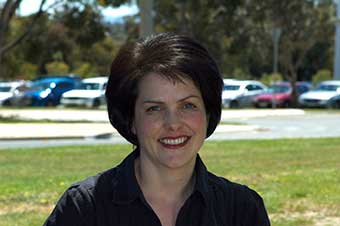 | |
Alison commenced her PhD in mid-2016, conducting research into the relationship between business incubator services and the psychological capital of tenants. Melton City Council the Western BACE were industry partners for the project, and her studies were supported by CeRDI.
Among the many benefits to studying through CeRDI, Alison nominates the access to research-expert staff, having a strong post-graduate community of students, and the availability of many and various practical resources as being particularly important. In commenting further on these benefits Alison said:
The PhD provided a valuable opportunity to complete research in my discipline area (psychology) while receiving guidance and expert advice from a strong supervisory team together backed up by the research and technical expertise in CeRDI. The transition from being a CeRDI staff member to a full time CERDI student was aided by the support I received in CeRDI, and from the Federation University-wide research community.
In particular, Alison referred to the graduate centre program and annual post graduate conference, organised through Federation University, as programs that she also found beneficial during her studies. These opportunities fostered additional learnings, insights and skills that supported her research.
Alison’s PhD supervisors were CeRDI’s Dr Angela Murphy and Distinguished Professor Helen Thompson, and Prof Suzanne McLaren. Having a strong, supportive, and committed team of supervisors is something Alison acknowledges as being essential to pursuing here research and completing her PhD. And while her research was quite unique, the project itself was aligned broadly with CeRDI’s collaborative research program in Health and Wellbeing, ensuring a strong connection between her research and the broader research focus in CeRDI.
Alison's PhD was confirmed in 2020 and is currently employed in CeRDI as a Research Fellow.
Dr Himalaya Singh, Alumnus, Centre for eResearch and Digital Innovation, Federation University Australia
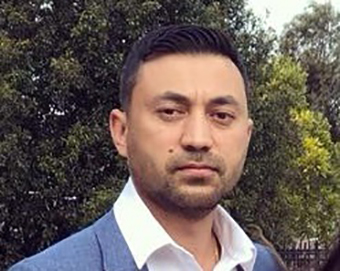 | |
I am so grateful for the support I received from the CeRDI team and my colleagues throughout my PhD journey. The experiences and skills I developed at CeRDI have been instrumental in supporting me in my career
An online advertisement for a PhD scholarship was the starting point for an exciting journey of research at Federation University Australia for Dr Himalaya Singh.
Himalaya’s post-graduate research explored the application of spatial methods in sports injury epidemiological studies. The geospatial distribution of sport/leisure injury hospitalisations and its association with a broad range of social and economic characteristics provided an opportunity to connect with the Centre for eResearch and Digital Innovation (CeRDI) at Federation University. With the support of his supervisory team - including CeRDI Director, Distinguished Professor Helen Thompson - Himalaya was encouraged to fully utilise the resources at CeRDI to assist him with his studies.
Connecting with CeRDI opened up an exciting range of new opportunities for Himalaya. This included conducting applied research with the support of a multidisciplinary and skilled research and technical team within CeRDI.
Himalaya talks positively about his time at CeRDI and believes that the workshop and training opportunities within CeRDI contributed greatly to developing the necessary skills required to conduct and complete his post-graduate studies. He is grateful for the support he received from the technical team which helped him to address gaps in his technical skill set: “CeRDI’s unique approach to research, combined with digital innovation, enabled me to produce technical outputs for my studies which was well received by the broader research community”.
Himalaya, who is originally from Nepal, completed his studies at the Mt Helen campus of Federation University, and resided in Ballarat during his studies. He enjoyed the experience of living and studying in a regional location, off-set by a great sense of community and yet having access to the same amenities as other metropolitan campuses. Himalaya commented: “I really enjoyed my stay in Ballarat during my post-grad studies. In particular I enjoyed the tranquil environment, yet having access to all the amenities. The sense of community and the support from within the university, and outside, played a significant role in assisting me to stay focused and motivated during my studies”.
Within weeks of submitting his PhD thesis for examination, Himalaya landed his dream job as a spatial systems officer for a large local government organisation in Victoria. Himalaya attributes much of the hands-on experienced he received from CeRDI during his PhD with assisting him to gain this position and to utilise his skill base and research knowledge within a thriving community environment.
Himalaya successfully completed his PhD in 2018.
Dr Nathan Robinson, Alumnus, Centre for eResearch and Digital Innovation, Federation University Australia
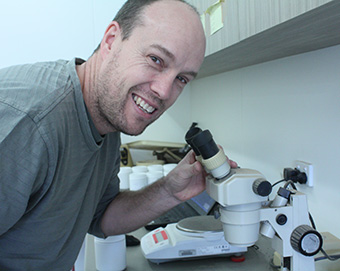 | |
Collegiality and support are the key things that separate CeRDI from other universities and post graduate settings
Geologist Nathan Robinson commenced his PhD at Federation University Australia in 2012, following an illustrious career in soil and landscape analysis working with the Victorian government. Nathan’s interest in soils formed the basis of his award-winning PhD research which examined soil productivity in Victorian landscapes using digital soil mapping.
Nathan’s decision to commence a PhD at Federation University was greatly influenced by the strong reputation of Federation University, and the knowledge and commitment of his principal supervisor, Associate Professor Peter Dahlhaus from the Centre for eResearch and Digital Innovation (CeRDI).
The flexibility, trust and support that Nathan received within CeRDI also contributed to his positive PhD experience. The support of staff within CeRDI, complemented by varied opportunities and experiences proved to be both rewarding and beneficial for Nathan: “The best experiences during my PhD were the additional support and insights I gained from the Centre and the CeRDI staff. A key priority of the Centre is making data accessible and findable. Through my collaboration with CeRDI I was able to examine and introduce these methods into my own research. This proved rewarding and mutually beneficial my studies and to CeRDI”. It is these opportunities and the collegiality and support that Nathan received that he believes, differentiates CeRDI and Federation University from other universities and post graduate settings.
Having studied at a regional university was another benefit associated with his studies. As a Bendigo resident Nathan regularly visited Ballarat and considers the regional university experience a positive one: “Ballarat is a great regional setting, with good connections to Melbourne and other regions. There’s plenty for students to do here with many opportunities for students to connect with one another”. Nathan also commented on the university culture at Federation University which he believes offers a unique and positive vibe that enables students to be relaxed yet focused on their studies.
Nathan’s advice for those contemplating a PhD or who have already commences their studies is to be prepared to negotiate and work with your institution and supervisors to achieve your study goals. In commenting further Nathan said: “Being realistic about your goals and being clear in your communication is essential. Both CeRDI and Federation University greatly assisted me to succeed with my research goals, ensuring that my study experience was a positive one”.
Nathan completed his PhD in 2016 and was awarded the prestigious Soil Science Australia CG Stephens Medal for the best PhD thesis in soil science (2017). He has since been appointed senior research fellow in CeRDI and is now utilising and extending his research expertise within the Centre’s Agriculture research programme.

